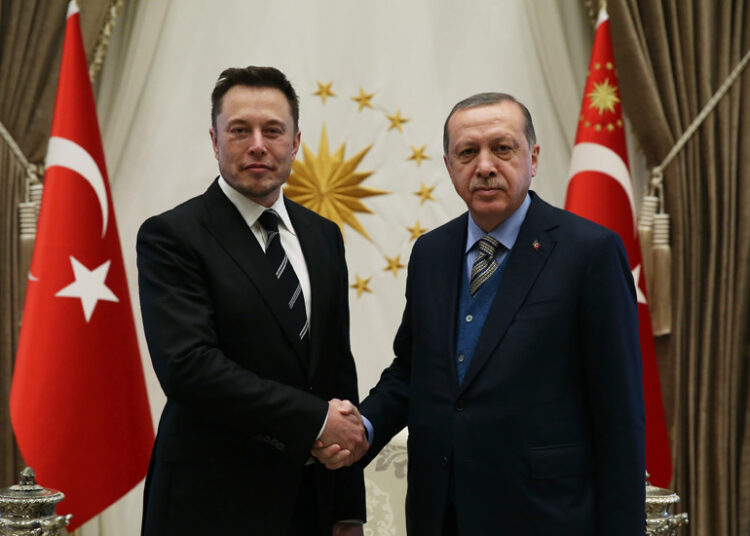Levent Kenez/Stockholm
One day before the May 14 presidential and parliamentary elections in Turkey, Twitter announced that access to accounts belonging to vocal critics of the government had been blocked in Turkey and that this was done to prevent Twitter from being completely shut down in the country.
Twitter owner Elon Musk reacted to Bloomberg columnist Matthew Yglesias’s message describing the blocking decision on the eve of the elections as censorship, tweeting, “Did your brain fall out of your head, Yglesias? The choice is to have Twitter throttled in its entirety or limit access to some tweets. Which one do you want?” After a flood of negative reactions from users, he had to announce that they would publish the documents sent to them by the Turkish government.
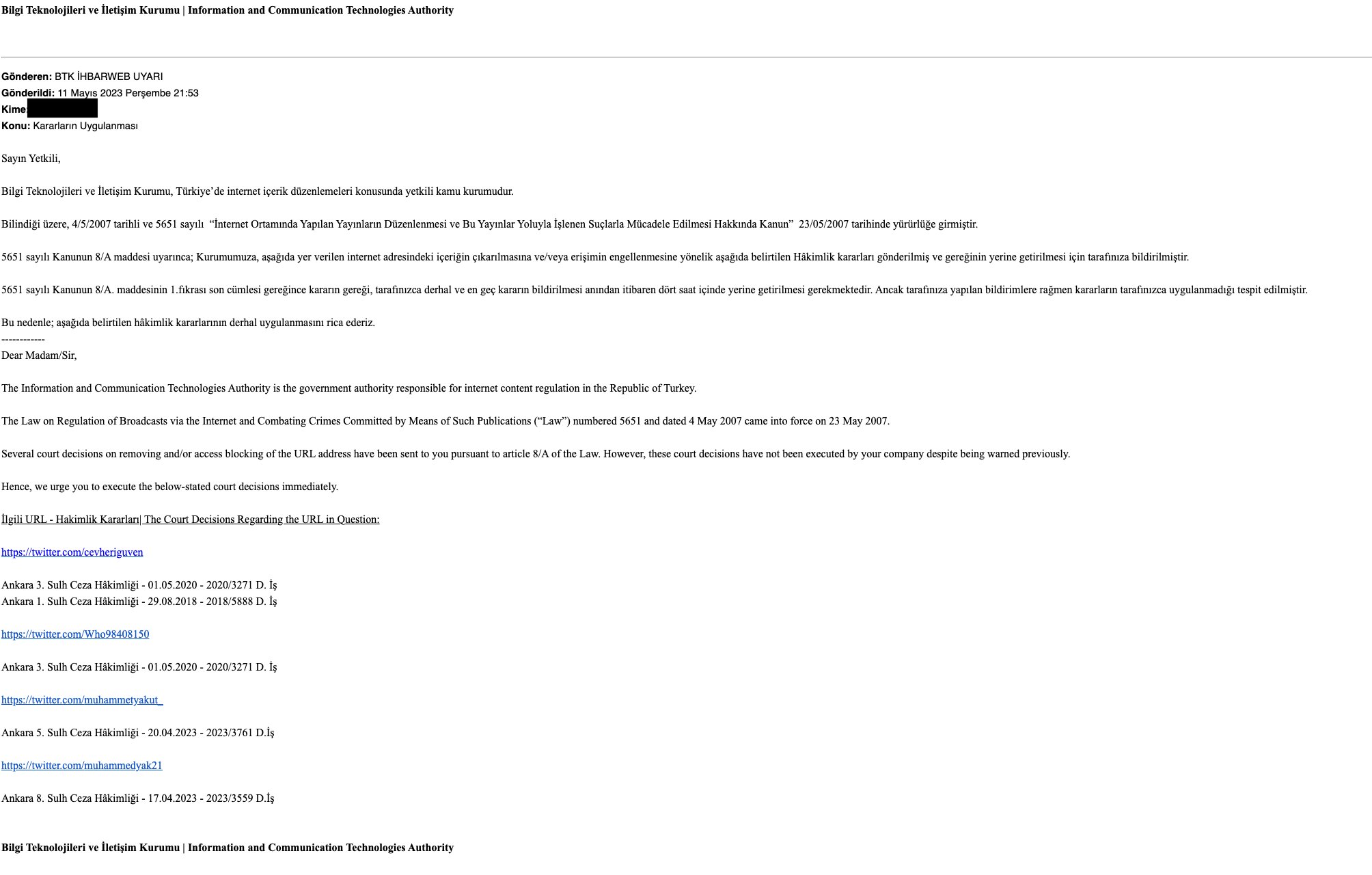
On Monday Twitter published e-mail correspondence with the Information and Communication Technologies Authority (BTK) and past court decisions, including a request to block access to Nordic Monitor.
“We received what we believed to be a final threat to throttle the service – after several such warnings – and so in order to keep Twitter available over the election weekend, took action on four accounts and 409 Tweets identified by court order,” Twitter said in a statement posted by its Global Government Affairs team.
The documents released on Monday were nothing more than court decisions that social media users in Turkey are very familiar with, so it is still unknown which government official or authority threatened to shut Twitter down completely.
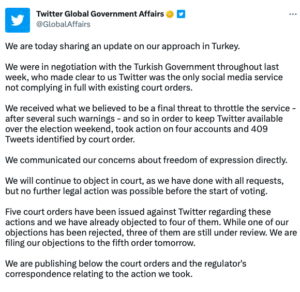
Twitter also claimed that no further legal action was possible before the start of voting.
All the accounts that were ordered to be blocked by decisions made by government-controlled courts belong to critics and journalists in exile who had to flee Turkey.
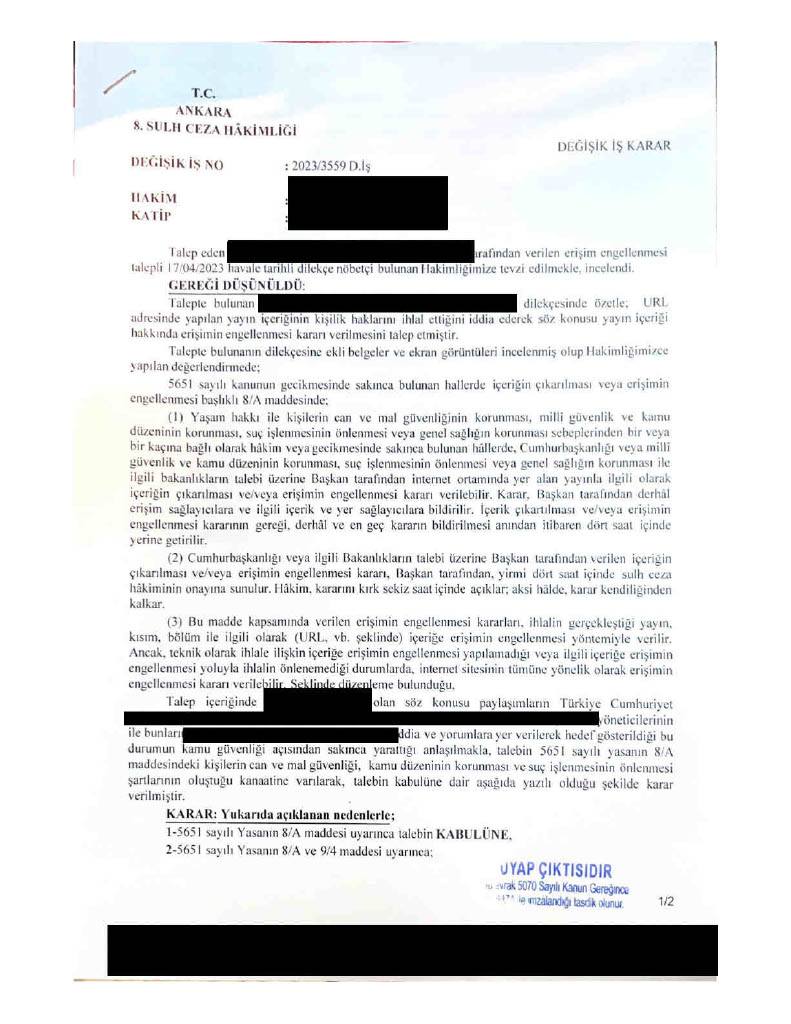
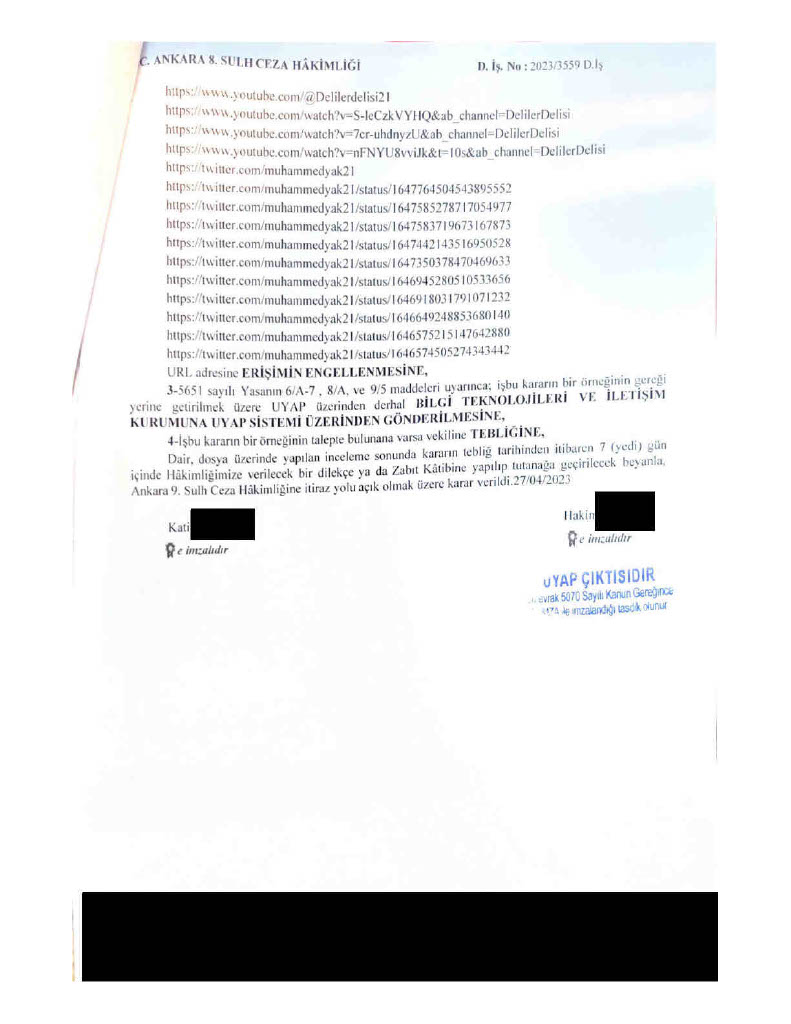
Nordic Monitor previously reported that the government of President Recep Tayyip Erdogan planned to increase its control over news websites and social media with new legislation that entered into force on October 14, 2022. The law was aimed at combatting disinformation, and extensive censorship was also introduced regarding the operations of the Turkish intelligence agency MİT.
With new articles added to the Turkish Penal Code (TCK), the crime of “publicly disseminating misleading information” is explained for the first time. A person who spreads disinformation is defined as “a person who publicly disseminates false information about the internal or external security, public order or general health of the country in a way that can disturb the public peace, with the sole aim of creating anxiety, fear or panic among the society. Those who are convicted of this crime will be sentenced to imprisonment of between one and three years. If the accused hides it or commits it within the framework of terrorist organization activity, the penalty will be increased by half.”
Within the scope of an obligation specified in the TCK for foreign social media platforms to have a representative in Turkey, it will no longer be sufficient for the representative to be a Turkish citizen only; the representative will need to reside in Turkey. If the daily access from Turkey is more than 10 million, the legal representative is supposed to be fully authorized and responsible for technical, administrative, legal and financial issues before the law.
The intention of the regulation was that the person appointed as the representative would see the risk of prosecution and being jailed so he or she would work more harmoniously with the government.
After twin earthquakes devastated southern Turkey on February 6, killing more than 50,000 people according to the latest official figures, the BTK imposed a ban on Twitter and TikTok by order of the government. The nine-and-a-half-hour block on Twitter, the platform where people still under the rubble shared their location information and where aid activities were organized, garnered a strong reaction. The government lifted the ban after the backlash.

